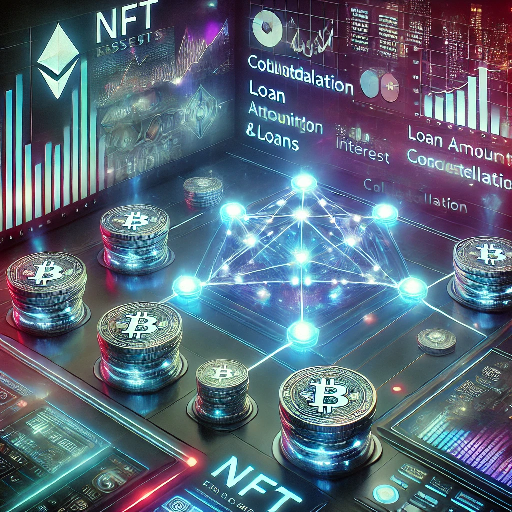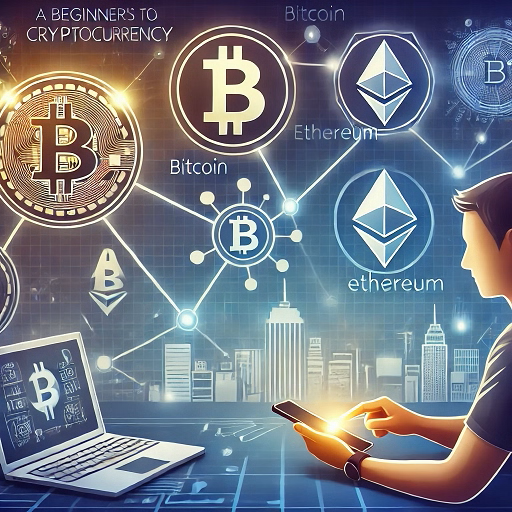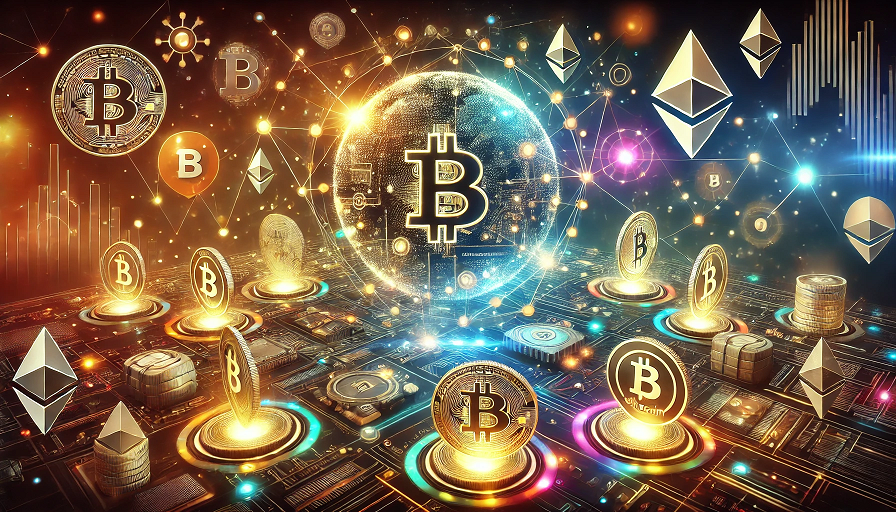Non-Fungible Tokens (NFTs) have revolutionized the concept of digital ownership and asset management since their introduction. Initially celebrated for their role in the art world and digital collectibles, NFTs have rapidly evolved to influence numerous industries. This article explores the expanding impact of Non-Fungible Tokens in gaming, real estate, intellectual property, and identity management, while also highlighting the critical advancements in NFT interoperability.
Non-Fungible Tokens in Gaming: Transforming Digital Economies
The gaming industry has quickly embraced Non-Fungible Tokens, redefining the way players engage with and own in-game assets. Traditional gaming ecosystems restrict asset usage to single platforms, limiting player autonomy. NFTs overcome these boundaries by providing verifiable ownership and enabling the seamless transfer of digital assets across various gaming environments.
Play-to-Earn Models Empowering Gamers
Play-to-Earn (P2E) models have become a groundbreaking trend, allowing players to earn real-world income by engaging in games. Blockchain-based games like Axie Infinity and The Sandbox empower players to collect, trade, and monetize in-game items as NFTs. This model fosters decentralized gaming economies where value creation is shared between developers and players.
Cross-Platform Asset Utilization of Non-Fungible Tokens
NFT interoperability enhances gaming by enabling assets to function across multiple games. Owning a unique NFT-based sword in one game and using it in another enriches gameplay and opens new monetization pathways for developers.
Non-Fungible Tokens in Real Estate: Digitizing Property Transactions
Real estate is undergoing a significant transformation with the integration of Non-Fungible Tokens. Traditionally, property sales involve cumbersome paperwork and intermediaries. NFTs streamline these processes by digitizing property ownership, resulting in more secure and efficient transactions.
Fractional Ownership of Real Estate with Non-Fungible Tokens
Tokenizing real estate allows properties to be divided into fractional NFTs, providing investment opportunities to a broader audience. This democratizes real estate investments and reduces entry barriers. Platforms like Propy have successfully facilitated blockchain-based real estate deals, showcasing the practicality of this model.
Smart Contracts for Secure Transactions with Non-Fungible Tokens
Smart contracts embedded in NFTs automate property transactions, ensuring transparency and reducing fraud. They provide tamper-proof ownership records, fostering trust in real estate deals.
Non-Fungible Tokens in Intellectual Property: Safeguarding Creativity
Non-Fungible Tokens offer a powerful tool for creators to secure and monetize their intellectual property. Traditional IP protection methods are often slow and complex, whereas NFTs provide a transparent, efficient solution.
Verified Ownership and Provenance of Non-Fungible Tokens
NFTs authenticate and trace the origin of creative works, benefiting artists, musicians, and content creators. Minting their work as NFTs allows creators to protect their intellectual property with verifiable proof of ownership.
Automated Royalties for Creators of Non-Fungible Tokens
NFT technology enables automatic royalty payments whenever digital assets are resold. This innovation ensures ongoing compensation for creators, supporting a more sustainable creative economy.
Non-Fungible Tokens in Identity Management: Enhancing Data Security
Identity management is rapidly evolving with the adoption of Non-Fungible Tokens. Traditional identity systems rely on centralized databases, which are vulnerable to security breaches. NFTs offer a decentralized, secure solution for managing personal identity.
Blockchain-Based Digital Identity Verification
NFTs can store encrypted, verifiable identity credentials on the blockchain, granting individuals control over their data. Projects like Civic and SelfKey leverage NFTs to streamline KYC processes while prioritizing user privacy.
Secure Access and Credential Management
NFTs can replace traditional passwords and access cards, serving as secure digital keys for both online platforms and physical spaces, enhancing convenience and security.
Advancing NFT Interoperability: Building a Unified Ecosystem
One of the most critical challenges for Non-Fungible Tokens is achieving interoperability across different platforms and blockchains. Without seamless integration, NFTs remain limited within isolated ecosystems.
Cross-Chain Integration
Initiatives like Polkadot and Cosmos are working on cross-chain solutions that enable NFTs to move freely between blockchains, fostering a more connected NFT landscape.
Establishing Universal Standards
Existing standards such as ERC-721 and ERC-1155 have laid the groundwork for NFTs, but broader standards are necessary for full interoperability. Industry-wide collaborations are focused on creating consistent NFT protocols.
NFTs and the Metaverse
Interoperability is key to the metaverse’s growth, where NFTs will allow users to transfer digital assets and identities across multiple virtual worlds, enriching the overall digital experience.
Conclusion of Non-Fungible Tokens
Non-Fungible Tokens have evolved beyond their artistic roots to impact gaming, real estate, intellectual property, and identity management. They introduce transparency, efficiency, and new economic opportunities across industries. As interoperability continues to advance, NFTs will unlock even greater potential for reshaping digital ownership and global economies. Embracing these developments will be pivotal in navigating the digital future.


















